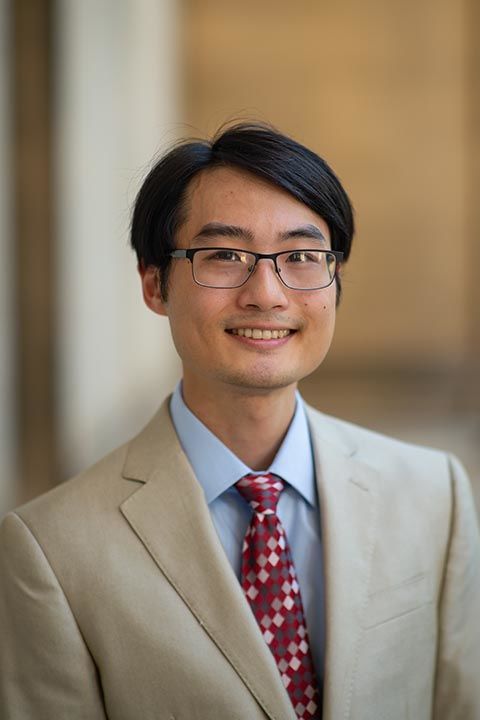
Olmsted Building W256M
Middletown, PA 17057
Biography
Mark is a generalist who enjoyed learning and acquiring deep conceptual understanding in nearly all his classes in high school... and then was shocked and appalled that virtually everyone else did not. After some twists and turns and existential wondering about the role of education in principle and in practice, he vowed to win students of the present and future over to his fervent belief that knowledge and growth are desirable, empowering, and valuable on their own merits. He earned his doctorate in Physics Education Research (PER), driven by goals in his teaching and research to transform physics from an object of fear to one that inspires wonder, curiosity, and gratification to those who study it.
Mark's research has been in the development of active learning materials for quantum mechanics courses, and he seeks to investigate and continually improve student attitudes, learning outcomes, and the social environment in introductory physics lecture and lab courses. He also holds interests in biology, chemistry, music, philosophy, history, art, animation, and writing, and strives to incorporate these elements into his teaching to show that physics, and a hunger for learning, can be applied nearly anywhere.
Research Interests
- Physics Education Research
- Active Learning Implementation
- Instructional Materials Development
- Quantum Mechanics Instruction
- Cognitive Science
- Introductory Physics for Life Sciences (IPLS)
Publications
Hu, P., Li, Y., & Singh, C. (2024). Investigating and improving student understanding of the basics of quantum computing. Physical Review Physics Education Research, 20(2), 020108. https://doi.org/10.1103/PhysRevPhysEducRes.20.020108
Hu, P., Li, Y., Mong, R. S. K., & Singh, C. (2024). Student Understanding of the Bloch Sphere. European Journal of Physics, 45(2), 025705. https://doi.org/10.1088/1361-6404/ad2393
Hu, P., Li, Y., & Singh, C. (2023). Challenges in addressing student difficulties with basics and change of basis for two-state quantum systems using a multiple-choice question sequence in online and in-person classes. European Journal of Physics, 44(6), 065703. https://doi.org/10.1088/1361-6404/acf5b3
Hu, P., Li, Y., & Singh, C. (2023). Challenges in addressing student difficulties with quantum measurement of two-state quantum systems using a multiple-choice question sequence in online and in-person classes. Physical Review Physics Education Research, 19(2), 020130. https://doi.org/10.1103/PhysRevPhysEducRes.19.020130
Hu, P., Li, Y., & Singh, C. (2023). Challenges in addressing student difficulties with measurement uncertainty in two-state quantum systems using a multiple-choice question sequence in online and in-person classes. European Journal of Physics, 44(1), 015702. https://dx.doi.org/10.1088/1361-6404/ac9ba3
Hu, P., Li, Y., & Singh, C. (2022). Challenges in addressing student difficulties with time-development of two-state quantum systems using a multiple-choice question sequence in virtual and in-person classes. European Journal of Physics, 43(2), 025704. https://doi.org/10.1088/1361-6404/ac49f4
Education
Ph.D., Physics Education Research, University of Pittsburgh
M.S., Physics, University of Pittsburgh
B.S., Physics and Astronomy, University of Pittsburgh